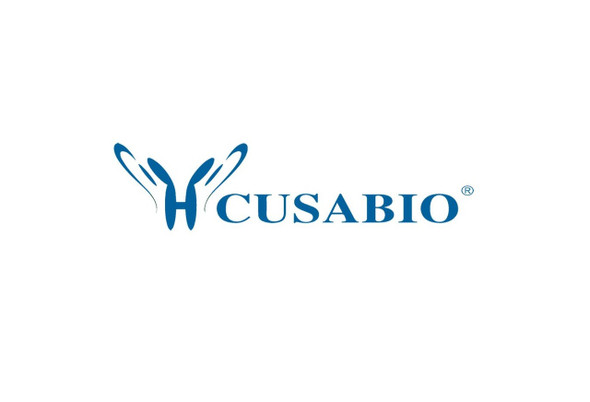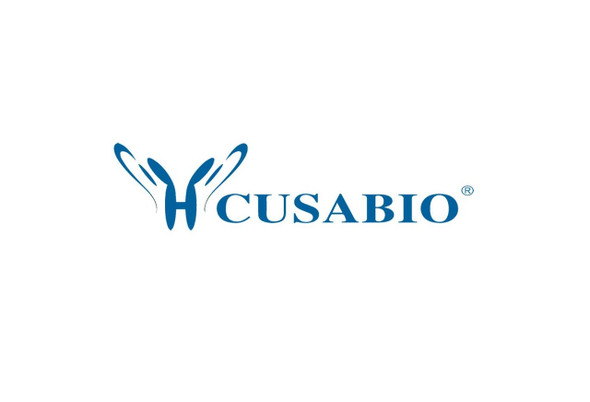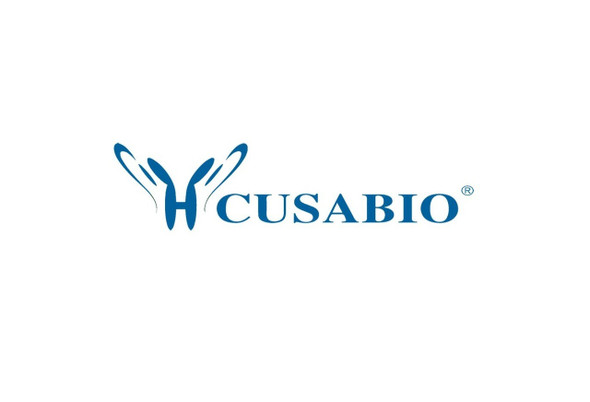Cusabio Human Recombinants
Recombinant Human Ecto-NOX disulfide-thiol exchanger 2 (ENOX2), partial | CSB-EP007677HU2
- SKU:
- CSB-EP007677HU2
- Availability:
- 13 - 23 Working Days
Description
Recombinant Human Ecto-NOX disulfide-thiol exchanger 2 (ENOX2), partial | CSB-EP007677HU2 | Cusabio
Alternative Name(s): APK1 antigen (Cytosolic ovarian carcinoma antigen 1) (Tumor-associated hydroquinone oxidase) (tNOX) (COVA1)
Gene Names: ENOX2
Research Areas: Cancer
Organism: Homo sapiens (Human)
AA Sequence: GILIQFEQIVAVYHSASKQKAWDHFTKAQRKNISVWCKQAEEIRNIHNDELMGIRREEEMEMSDDEIEEMTETKETEESALVSQAEALKEENDSLRWQLDAYRNEVELLKQEQGKVHREDDPNKEQQLKLLQQALQGMQQHLLKVQEEYKKKEAELEKLKDDKLQVEKMLENLKEKESCASRLCASNQDSEYPLEKTMNSSPIKSEREALLVGIISTFLHVHPFGASIEYICSYLHRLDNKICTSDVECLMGRLQHTFKQEMTGVGASLEKRWKFCGFEGLKLT
Source: E.coli
Tag Info: N-terminal 10xHis-tagged and C-terminal Myc-tagged
Expression Region: 327-610aa
Sequence Info: Partial
MW: 40.1 kDa
Purity: Greater than 85% as determined by SDS-PAGE.
Relevance: May be involved in cell growth. Probably acts as a terminal oxidase of plasma electron transport from cytosolic NADH via hydroquinones to acceptors at the cell surface. Hydroquinone oxidase activity alternates with a protein disulfide-thiol interchange/oxidoreductase activity which may control physical membrane displacements associated with vesicle budding or cell enlargement. The activities oscillate with a period length of 22 minutes and play a role in control of the ultradian cellular biological clock.
Reference: "Inhibition of plasma membrane NADH oxidase activity and growth of HeLa cells by natural and synthetic retinoids." Dai S., Morre D.J., Geilen C.C., Almond-Roesler B., Orfanos C.E., Morre D.M. Mol. Cell. Biochem. 166:101-109(1997)
Storage: The shelf life is related to many factors, storage state, buffer ingredients, storage temperature and the stability of the protein itself. Generally, the shelf life of liquid form is 6 months at -20?/-80?. The shelf life of lyophilized form is 12 months at -20?/-80?.
Notes: Repeated freezing and thawing is not recommended. Store working aliquots at 4? for up to one week.
Function: May be involved in cell growth. Probably acts as a terminal oxidase of plasma electron transport from cytosolic NAD(P)H via hydroquinones to acceptors at the cell surface. Hydroquinone oxidase activity alternates with a protein disulfide-thiol interchange/oxidoreductase activity which may control physical membrane displacements associated with vesicle budding or cell enlargement. The activities oscillate with a period length of 22 minutes and play a role in control of the ultradian cellular biological clock.
Involvement in disease:
Subcellular Location: Cell membrane, Secreted, extracellular space
Protein Families: ENOX family
Tissue Specificity: Found in the sera of cancer patients with a wide variety of cancers including breast, prostate, lung and ovarian cancers, leukemias, and lymphomas. Not found in the serum of healthy volunteers or patients with disorders other than cancer. Probably shed into serum by cancer cells. Found on the cell borders of renal, kidney and ovarian carcinomas but not on the borders of surrounding non-cancerous stromal cells.
Paythway:
Form: Liquid or Lyophilized powder
Buffer: If the delivery form is liquid, the default storage buffer is Tris/PBS-based buffer, 5%-50% glycerol. If the delivery form is lyophilized powder, the buffer before lyophilization is Tris/PBS-based buffer, 6% Trehalose, pH 8.0.
Reconstitution: We recommend that this vial be briefly centrifuged prior to opening to bring the contents to the bottom. Please reconstitute protein in deionized sterile water to a concentration of 0.1-1.0 mg/mL.We recommend to add 5-50% of glycerol (final concentration) and aliquot for long-term storage at -20?/-80?. Our default final concentration of glycerol is 50%. Customers could use it as reference.
Uniprot ID: Q16206
HGNC Database Link: HGNC
UniGene Database Link: UniGene
KEGG Database Link: KEGG
STRING Database Link: STRING
OMIM Database Link: OMIM











